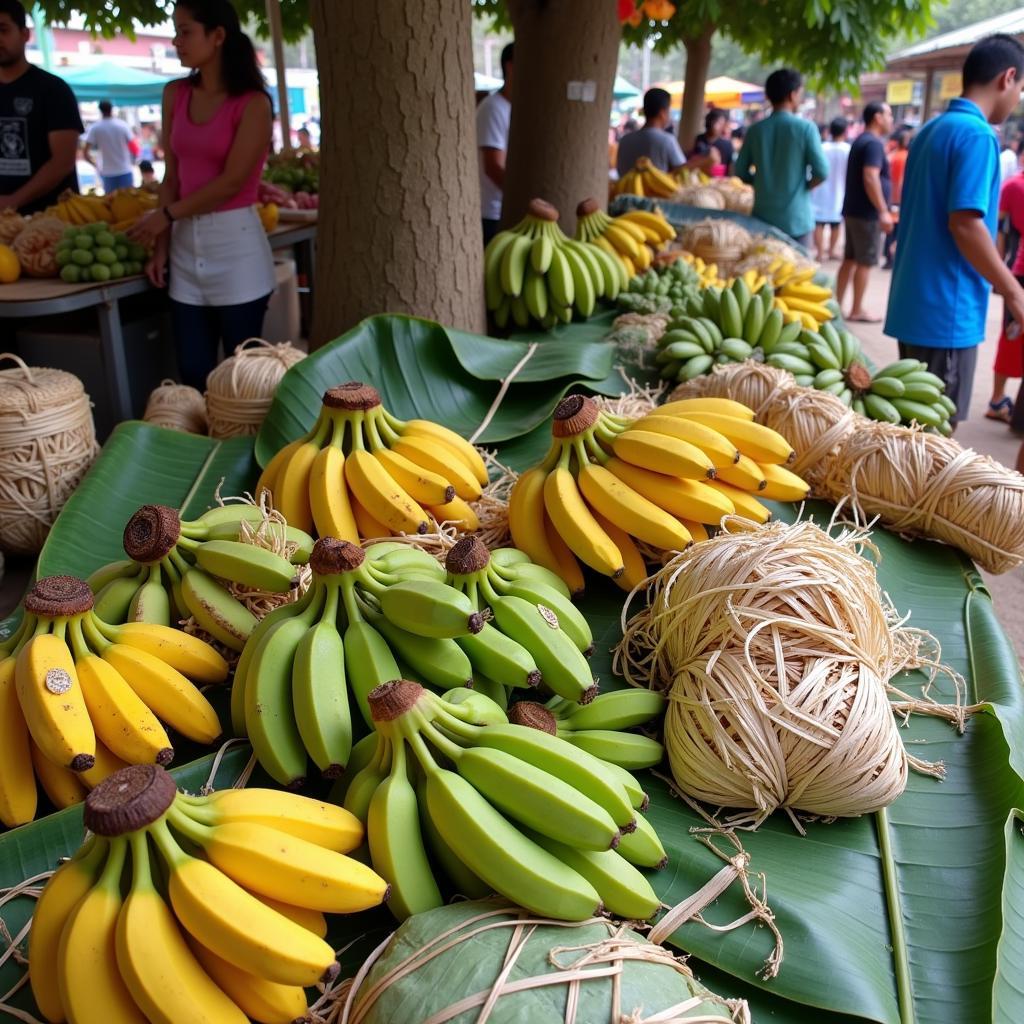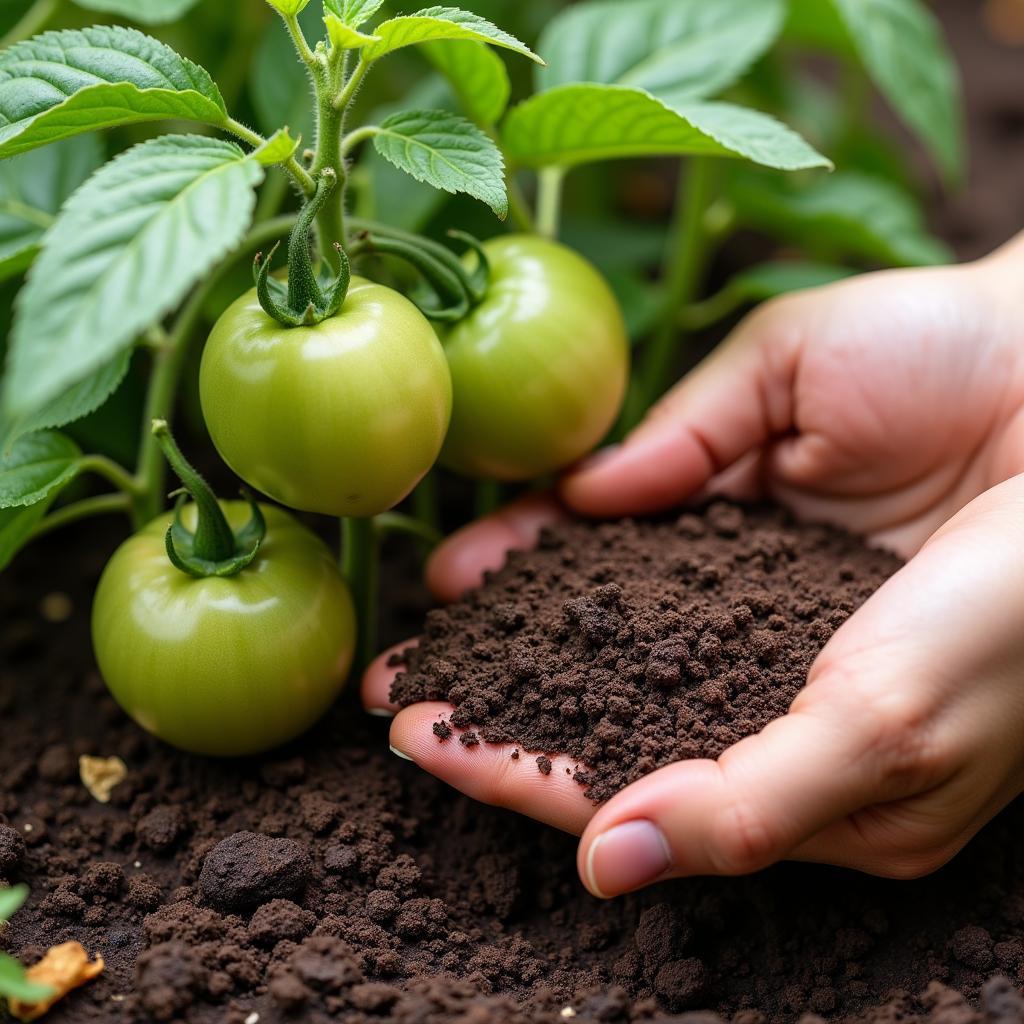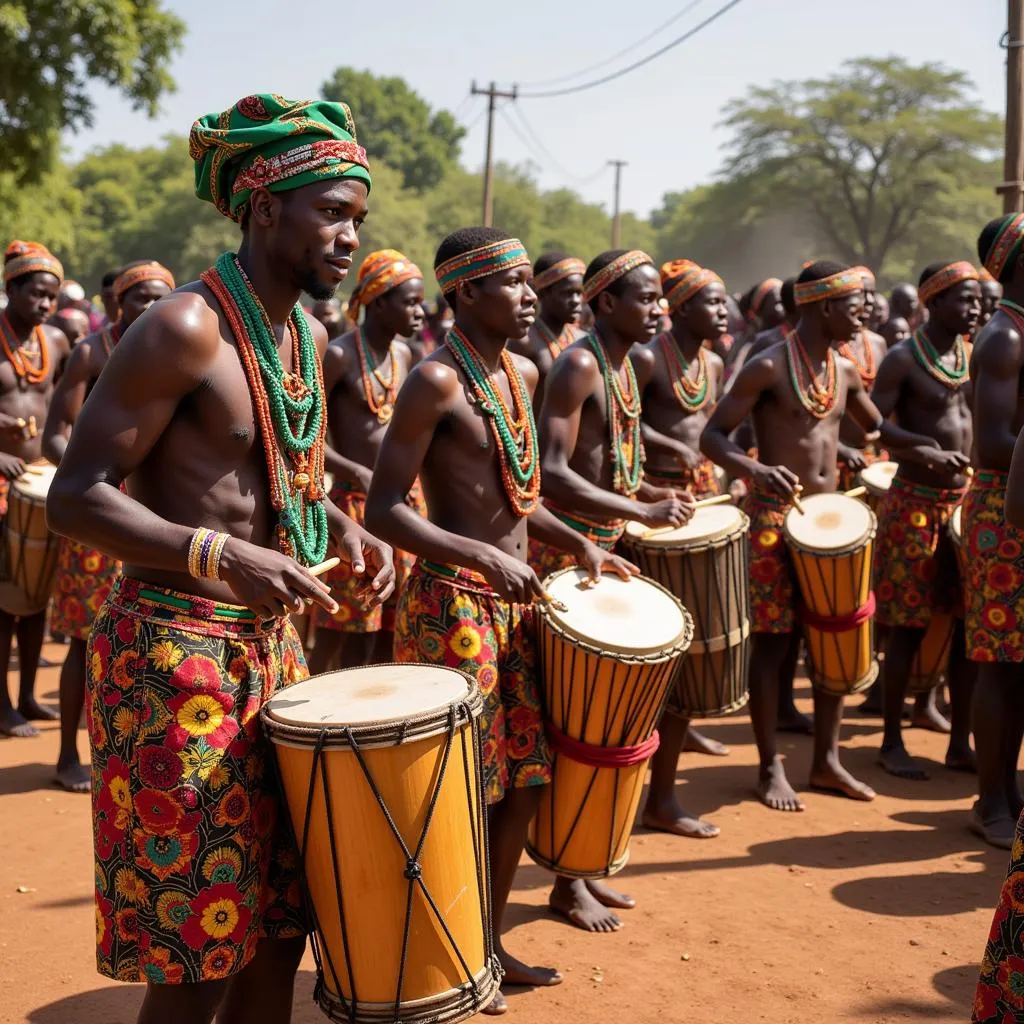The African Banana Tree: More Than Just a Fruit
The African Banana Tree, a staple across the continent, plays a vital role in both sustenance and culture. From its nutritious fruit to its versatile leaves and pseudostem, this plant offers a wealth of resources that extend far beyond the simple act of eating a banana. Let’s delve into the fascinating world of the African banana tree and discover its significance in various aspects of African Life.
The Significance of the African Banana Tree in Local Communities
The African banana tree, often referred to as matoke in East Africa, is a crucial food security crop. It provides a reliable source of carbohydrates, especially in regions where other staple crops might struggle due to climate or soil conditions. Beyond its nutritional value, the banana tree’s leaves are used for wrapping food, creating roofing materials, and even in traditional ceremonies. Its pseudostem, rich in water and nutrients, is often fed to livestock. This multifaceted utility makes the banana tree an indispensable part of the African landscape. Would you be surprised to learn it’s also used to make wine? This resourcefulness has ensured its presence in African communities for centuries.
Imagine a plant that feeds your family, shelters your home, and feeds your livestock. This is the reality for many communities who rely on the African banana tree. Its resilience and versatility make it a cornerstone of their livelihoods. Even the sap from the tree can be used medicinally, showcasing the remarkable range of benefits this plant provides. From African fritters to roofing materials, the African banana tree has it all.
Cultivating and Caring for the African Banana Tree
Growing and maintaining an African banana tree requires specific knowledge passed down through generations. While it thrives in warm, humid climates, the tree is susceptible to certain pests and diseases, like the banana weevil and Panama disease. Traditional methods of pest control often involve intercropping with other plants that repel insects, demonstrating a deep understanding of ecological balance. Proper drainage and soil enrichment are also vital for a healthy harvest. From preparing the soil to harvesting the fruit, cultivating the banana tree is a labor of love that connects communities to the land.
Understanding the Different Varieties of African Banana Trees
Did you know there are numerous varieties of African banana trees? Each boasts unique characteristics, from the size and sweetness of the fruit to the color of the pseudostem. Some varieties, like the ‘Sukari Ndizi’, are prized for their sweet fruit ideal for African dessert dishes and African dessert recipes, while others, like the ‘Matoke’, are preferred for cooking. This diversity ensures that different communities can cultivate varieties best suited to their specific needs and preferences.
“Understanding the specific needs of each variety is crucial for a successful harvest,” says Dr. Abeni Adebayo, an agricultural expert specializing in East African crops. “This knowledge, often held by the elders in a community, is essential for preserving the biodiversity of banana trees in the region.”
The African Banana Tree: A Cultural Icon
The African banana tree’s significance extends beyond its practical uses. It’s deeply interwoven into the fabric of many African cultures. In some societies, the banana tree represents fertility and prosperity, featuring prominently in traditional ceremonies and rituals. Its leaves are used to wrap special foods, and the fruit itself often plays a central role in celebratory feasts. From birth to marriage, the banana tree is often a silent witness to the milestones of life in many African communities. Are you intrigued by the cultural significance of the food we eat?
The Role of the African Banana Tree in Traditional Medicine
Beyond its culinary and cultural roles, the African banana tree has also found its place in traditional medicine. The sap, roots, and even the peel of the fruit are believed to have medicinal properties. For example, the sap is sometimes used as a topical treatment for burns and wounds. While these practices are deeply ingrained in local traditions, it’s essential to note that scientific research on their efficacy is ongoing.
“The use of the banana tree in traditional medicine speaks volumes about the deep connection between communities and their environment,” notes Dr. Kofi Asante, a researcher specializing in ethnobotany. “These practices reflect generations of accumulated knowledge about the healing properties of plants.”
 African Banana Tree Products at a Local Market
African Banana Tree Products at a Local Market
Conclusion
The African banana tree is more than just a source of food; it’s a symbol of resilience, resourcefulness, and cultural heritage. Its diverse uses, from sustenance and shelter to medicine and ceremonial practices, demonstrate its profound impact on African communities. By understanding the importance of the African banana tree, we gain valuable insights into the intricate relationship between people and their environment in the diverse landscapes of Africa. Remember to consider exploring south african fruit for further insights into the continent’s rich agricultural heritage. What role does the banana tree play in your understanding of African culture?
FAQ
- What are the main uses of the African banana tree?
- How is the African banana tree cultivated?
- What are the different varieties of African banana trees?
- What is the cultural significance of the African banana tree?
- How is the African banana tree used in traditional medicine?
- What are the challenges in cultivating African banana trees?
- How can we support sustainable practices for growing African banana trees?
Situations & Questions
Situation: You are traveling in East Africa and notice the prevalence of banana trees. You are curious about their significance.
Possible Questions: What are the different ways locals use the banana tree? Where can I try dishes made with bananas? Are there any cultural traditions associated with the banana tree?
Situation: You are researching sustainable agriculture in Africa.
Possible Questions: What are the environmental impacts of banana tree cultivation? Are there any initiatives promoting sustainable banana farming practices? How does banana cultivation contribute to local economies?
Further Exploration
For more information on African cuisine, you might find articles about African fast food interesting.
Contact Us
When you need help, please contact Phone Number: +255768904061, Email: [email protected] Or visit: Mbarali DC Mawindi, Kangaga, Tanzania. We have a 24/7 customer care team.

